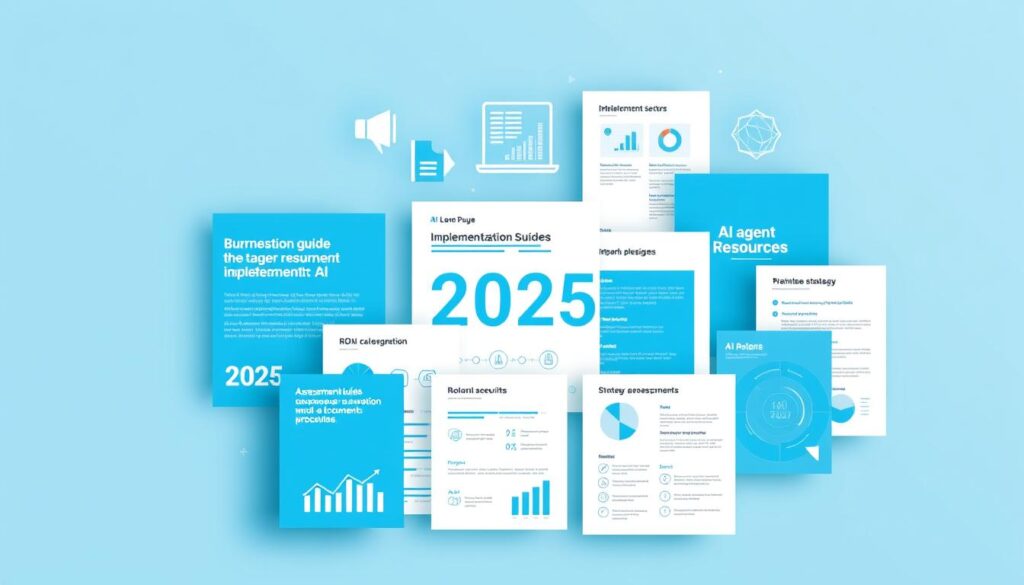In today’s rapidly evolving technological landscape, AI agents have emerged as transformative tools for modern businesses. Unlike traditional automation systems, these autonomous AI entities can perceive their environment, make decisions, and take actions with minimal human intervention. By 2025, the global AI agent market is projected to reach $5.4 billion, growing at an impressive annual rate of 45.8% through 2030. This exponential growth reflects the increasing recognition of AI agents’ ability to revolutionize business operations across industries.
The Evolution of Autonomous AI
The journey from basic automation to truly autonomous AI agents represents a fundamental shift in how businesses leverage technology. Understanding this evolution provides crucial context for appreciating the transformative potential of AI agents in 2025 and beyond.
Traditional Automation vs. AI Agents
Traditional automation systems operate on predefined rules and structured workflows. They excel at repetitive, predictable tasks but struggle with exceptions and novel situations. These systems require explicit programming for each scenario they encounter, limiting their adaptability in dynamic business environments.
In contrast, AI agents represent a significant leap forward in capability and autonomy. Rather than following rigid instructions, they leverage advanced algorithms to perceive their environment, analyze information, make decisions, and execute actions independently. This self-directed approach allows AI agents to handle complex, variable tasks that would overwhelm traditional automation systems.
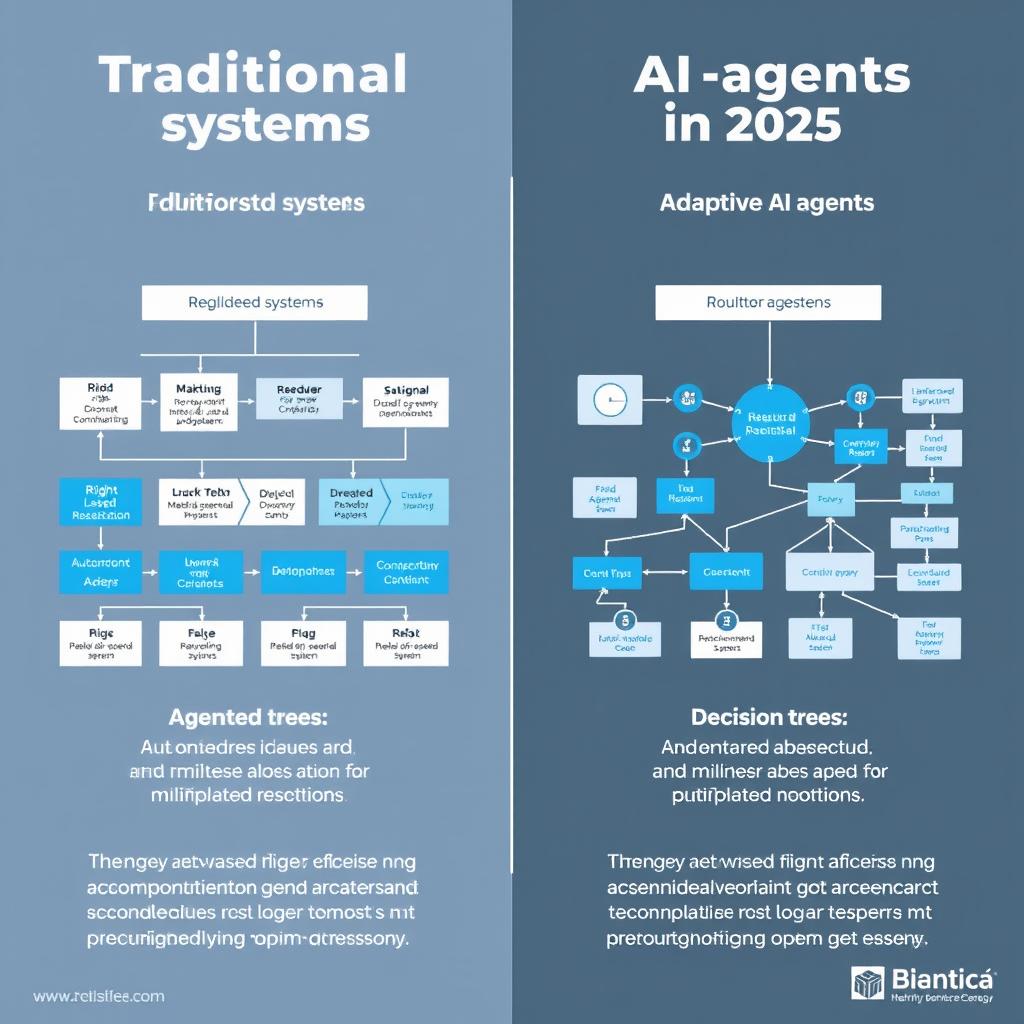
Key Technologies Enabling AI Agents
The remarkable capabilities of today’s AI agents stem from several converging technologies that have matured significantly in recent years:
Natural Language Processing
Advanced NLP capabilities, powered by large language models, enable AI agents to understand and generate human language with unprecedented accuracy. This allows them to interpret complex instructions, extract meaning from unstructured data, and communicate effectively with human users.
Machine Learning
Sophisticated machine learning algorithms allow AI agents to continuously improve their performance through experience. By analyzing patterns in data and outcomes of past actions, these systems can refine their decision-making processes without explicit reprogramming.
Real-Time Data Processing
Advanced computing infrastructure enables AI agents to process massive volumes of data in real-time. This capability allows them to respond instantly to changing conditions, incorporate new information, and maintain situational awareness across complex business environments.
Industry-Specific Applications
AI agents are revolutionizing operations across diverse industries, with each sector finding unique applications that address specific challenges and opportunities. By 2025, these implementations are expected to deliver significant competitive advantages to early adopters.
Customer Service
The customer service landscape is being transformed by AI agents capable of handling complex interactions with minimal human intervention. Unlike traditional chatbots limited to scripted responses, modern AI agents can understand context, access relevant information across systems, and resolve sophisticated customer issues independently.
By 2025, autonomous customer service bots are projected to resolve 80% of customer queries without human intervention, representing a dramatic improvement over the 30-40% resolution rates typical of earlier systems. These agents can maintain consistent service quality across all customer touchpoints while continuously learning from each interaction to improve future performance.
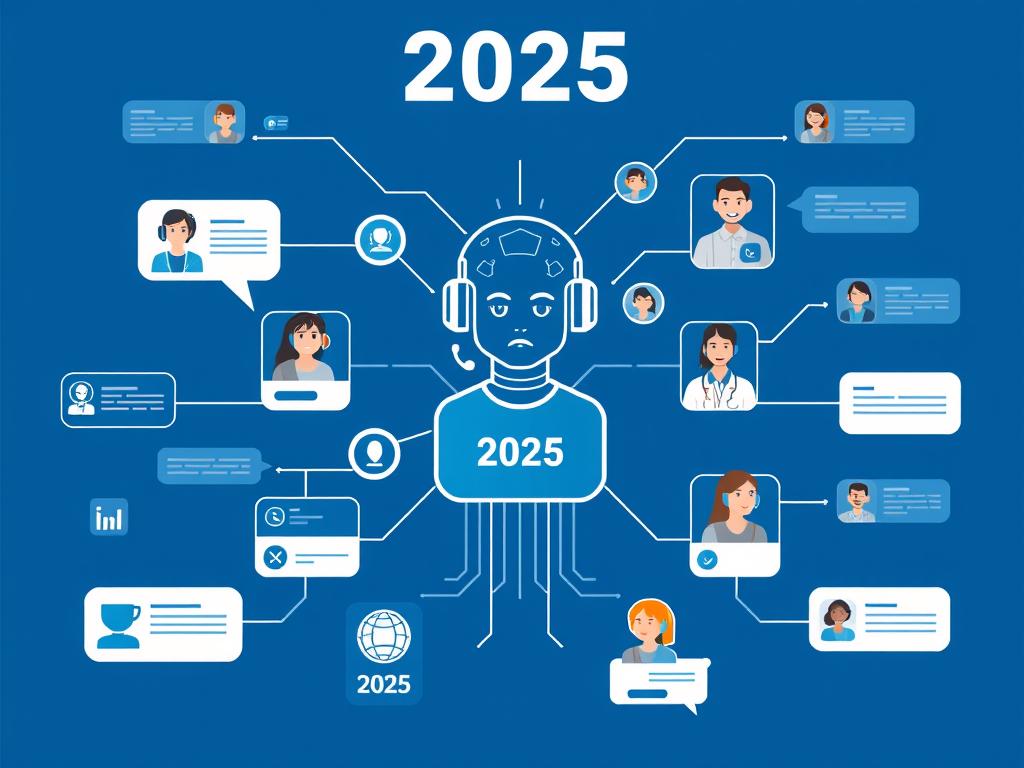
“The most effective AI agents in customer service don’t just answer questions—they anticipate needs, personalize interactions, and continuously learn from every customer engagement to improve future responses.”
Supply Chain
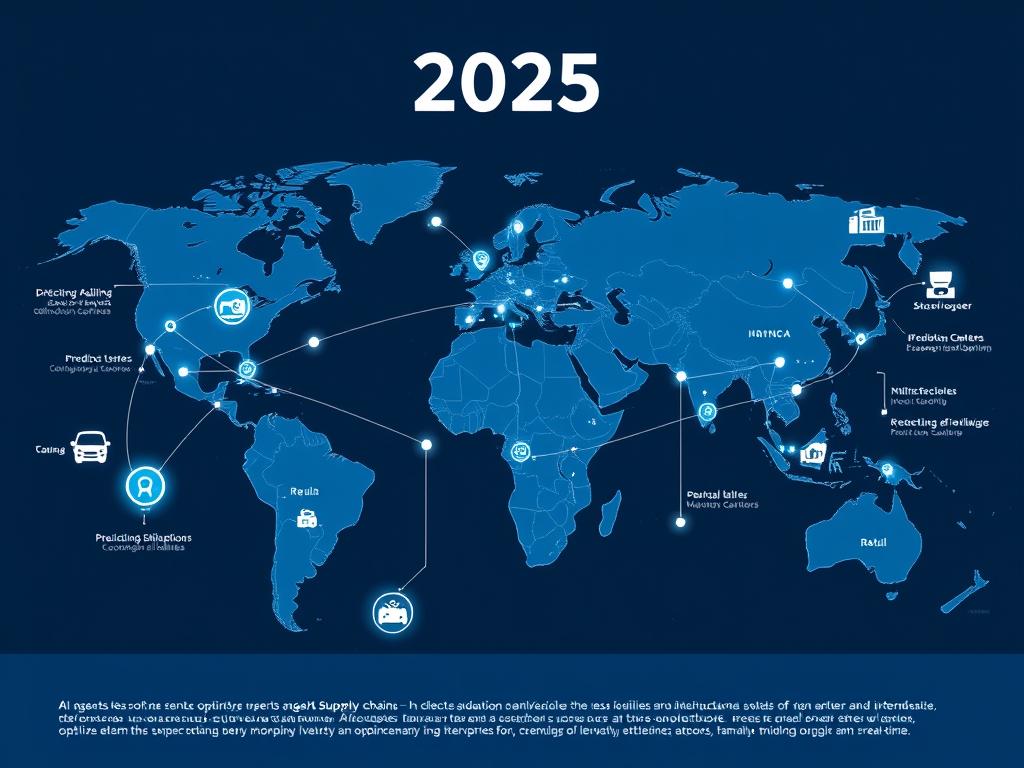
Supply chain management has emerged as one of the most promising applications for AI agents. These systems excel at orchestrating the complex, interconnected processes that define modern global supply networks.
AI agents in supply chain operations can simultaneously monitor thousands of variables—from weather patterns and geopolitical events to inventory levels and transportation costs—to identify potential disruptions before they occur. Companies implementing AI agents for supply chain management report a 32% reduction in disruption-related costs and a 28% improvement in on-time delivery performance.
Healthcare
In healthcare settings, AI agents are enhancing patient care while reducing administrative burdens on medical professionals. These systems can monitor patient vital signs, analyze medical records, and coordinate care across multiple providers.
Diagnostic support agents can analyze medical imaging, lab results, and patient history to identify potential issues that might be overlooked in manual review. Early detection rates for certain conditions have improved by up to 45% when AI agents are incorporated into diagnostic workflows. Meanwhile, administrative AI agents are reducing documentation time for physicians by an average of 3.2 hours per day, allowing more focus on direct patient care.

Finance
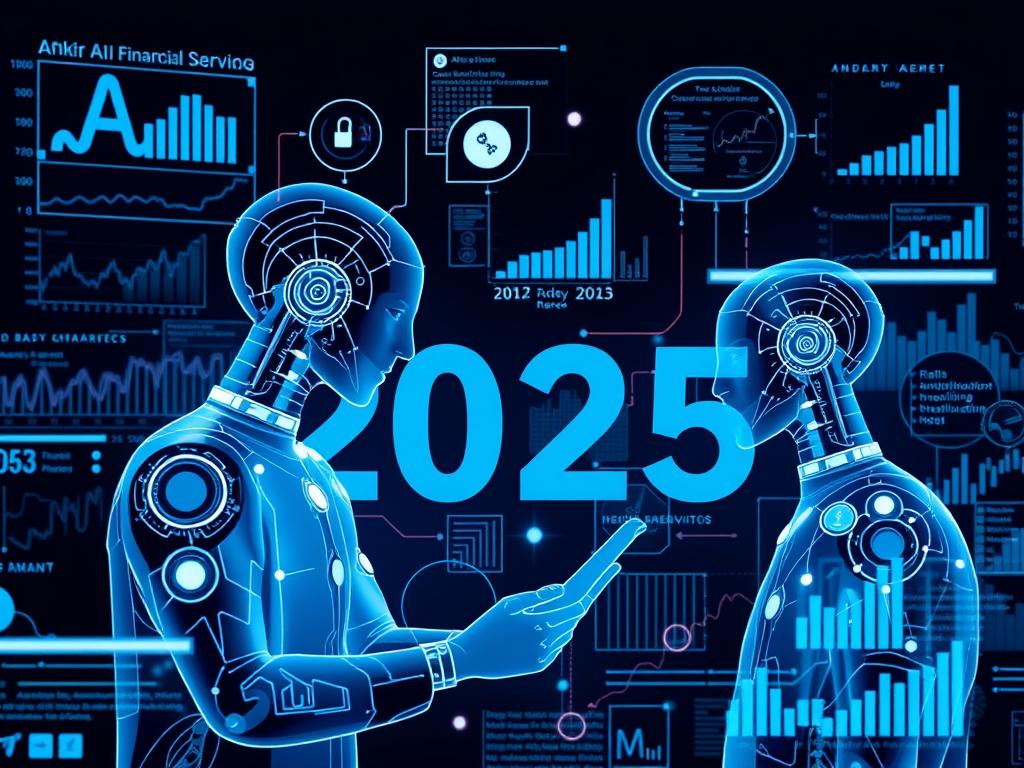
Financial institutions are deploying AI agents across multiple functions, from fraud detection and risk assessment to personalized financial advising and algorithmic trading. These systems can process vast quantities of financial data to identify patterns invisible to human analysts.
Fraud detection agents now operate continuously across all transactions, applying machine learning algorithms to distinguish legitimate activity from potential fraud with remarkable accuracy. Financial institutions using AI agents for fraud detection report a 60% reduction in false positives and a 42% improvement in actual fraud identification. Meanwhile, investment management agents can analyze market conditions, company performance, and economic indicators to optimize portfolio allocations in real-time.
Benefits for Businesses
The adoption of AI agents offers numerous advantages that extend beyond simple automation. Organizations implementing these systems are realizing transformative benefits across multiple dimensions of their operations.
Cost Reduction
AI agents dramatically reduce operational expenses by automating labor-intensive processes. Unlike human workers, these systems can operate continuously without breaks, vacations, or shift changes. Businesses implementing AI agents report average cost reductions of 30-45% for automated processes, with the most significant savings in data processing, customer service, and routine administrative functions.
Scalability
One of the most compelling advantages of AI agents is their ability to scale operations instantly in response to changing demand. Whether handling seasonal spikes in customer inquiries or processing surges in transaction volume, these systems can expand capacity without the delays associated with hiring and training human staff. This elasticity enables businesses to maintain consistent service levels despite fluctuating workloads.
24/7 Operations
AI agents eliminate the constraints of traditional business hours, enabling truly continuous operations. This capability is particularly valuable for global businesses serving customers across multiple time zones. Companies with 24/7 AI agent coverage report a 28% increase in customer satisfaction scores, largely attributed to reduced wait times and immediate issue resolution regardless of when customers reach out.
Data-Driven Decision Making
By continuously analyzing vast quantities of operational data, AI agents can identify patterns and insights that would be impossible for human analysts to discover manually. These systems can detect subtle correlations between seemingly unrelated variables, enabling more accurate forecasting and optimization. Organizations leveraging AI agents for decision support report a 35% improvement in prediction accuracy across various business functions.
Error Minimization
Human error remains a significant challenge in many business processes, particularly those involving repetitive tasks or complex calculations. AI agents execute operations with consistent precision, dramatically reducing error rates in critical functions. Financial institutions using AI agents for transaction processing report a 99.8% reduction in processing errors, translating to significant cost savings and improved customer trust.
Competitive Advantage
Perhaps most importantly, early adopters of AI agent technology are establishing significant competitive advantages in their respective industries. These organizations can operate more efficiently, respond more quickly to market changes, and deliver superior customer experiences compared to competitors relying on traditional approaches. By 2025, AI agent capabilities will likely become a critical differentiator across most business sectors.
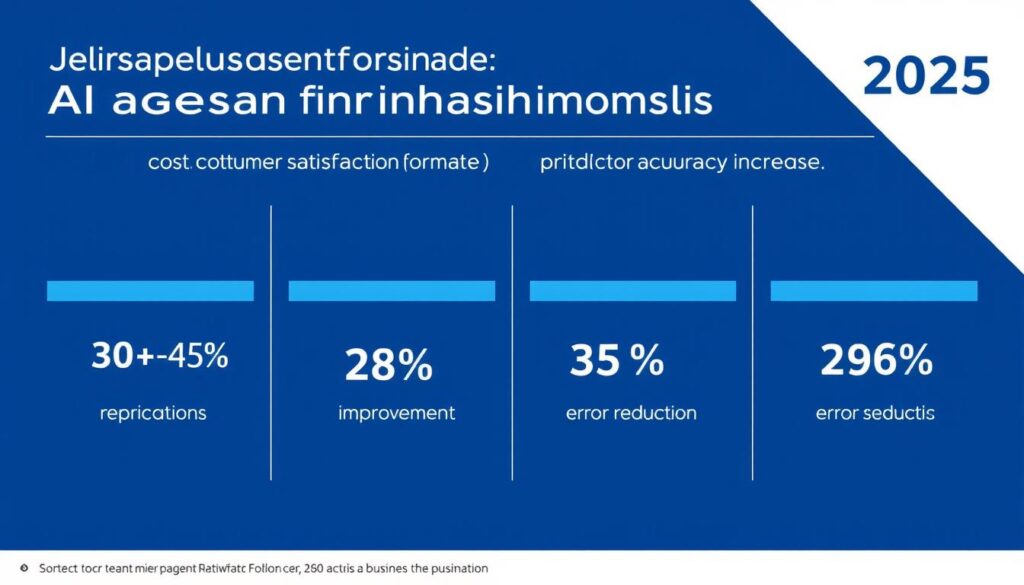
Challenges and Ethical Considerations
While the potential benefits of AI agents are substantial, their implementation also presents significant challenges and ethical considerations that organizations must address thoughtfully.
Workforce Impact
Perhaps the most widely discussed concern surrounding AI agents is their potential impact on employment. As these systems assume responsibilities traditionally performed by human workers, organizations must navigate complex workforce transitions.
Research suggests that by 2025, approximately 85 million jobs globally may be displaced by automation, while 97 million new roles may emerge from the division of labor between humans, machines, and algorithms. This transition creates both challenges and opportunities for businesses and workers alike.
Forward-thinking organizations are addressing this challenge through reskilling initiatives, creating new roles that leverage uniquely human capabilities, and developing collaborative human-AI workflows that enhance rather than replace human contributions.

Security and Privacy Risks
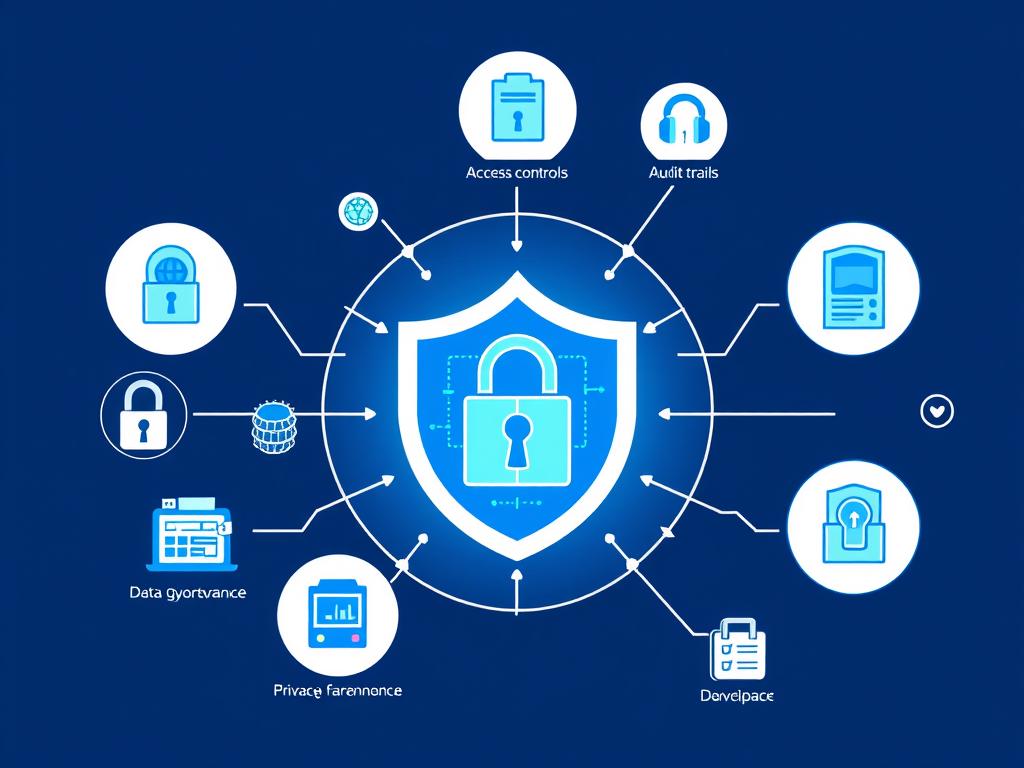
AI agents typically require access to sensitive business data and systems to perform their functions effectively. This access creates potential security vulnerabilities that must be carefully managed.
Key security concerns include:
- Unauthorized access to AI agent systems
- Data privacy violations during processing
- Potential for adversarial attacks that manipulate agent behavior
- Compliance challenges with evolving regulatory frameworks
Organizations implementing AI agents must establish robust security frameworks, including comprehensive access controls, encryption, continuous monitoring, and regular security audits. Additionally, privacy-by-design principles should be incorporated into all AI agent architectures to ensure compliance with regulations like GDPR, CCPA, and emerging AI-specific legislation.
Algorithmic Bias and Fairness
AI agents learn from historical data, which may contain embedded biases reflecting past human decisions. Without careful attention to fairness considerations, these systems risk perpetuating or even amplifying existing biases in their operations.
Addressing algorithmic bias requires a multifaceted approach:
Diverse Training Data
Ensuring training datasets represent diverse populations and scenarios to minimize systematic biases.
Fairness Metrics
Implementing specific metrics to detect and measure potential bias in AI agent decisions and outcomes.
Regular Auditing
Conducting ongoing audits of AI agent behavior to identify and address emerging bias patterns.
Important consideration: Organizations implementing AI agents should establish clear governance frameworks that define accountability for agent actions, transparency requirements, and processes for human oversight of critical decisions. These frameworks should evolve as AI agent capabilities advance and regulatory expectations mature.
Future Outlook
As we look beyond 2025, several emerging trends will likely shape the continued evolution and adoption of AI agents across the business landscape.
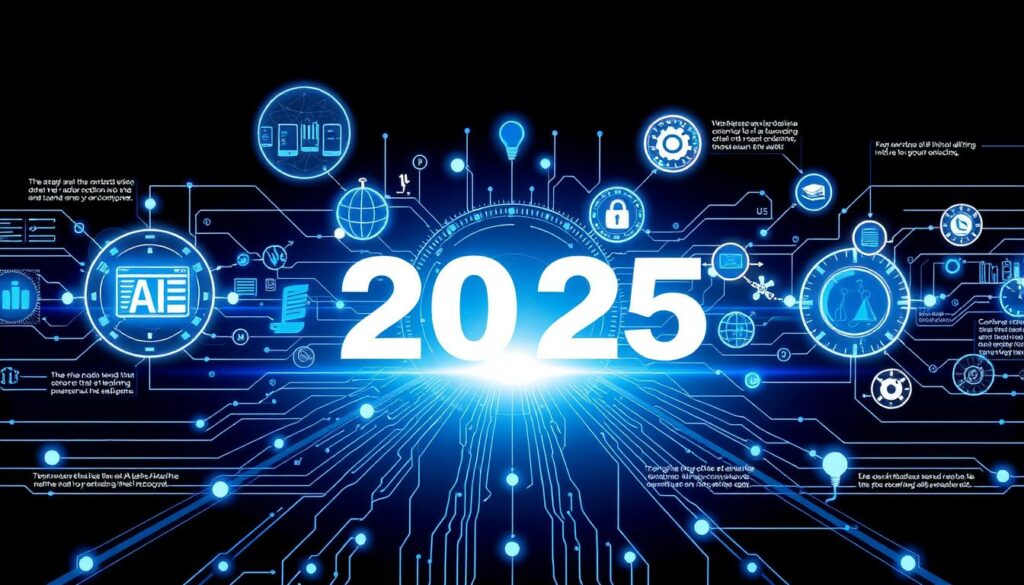
Predictions for AI Agent Adoption Post-2025
Multi-Agent Ecosystems
Rather than isolated systems, businesses will increasingly deploy interconnected networks of specialized AI agents that collaborate to address complex challenges. These ecosystems will feature agents with complementary capabilities working together under orchestration frameworks that coordinate their activities.
Enhanced Autonomy
AI agents will continue to gain greater decision-making authority as their capabilities mature and organizations build confidence in their reliability. By 2027, approximately 30% of operational decisions in large enterprises are expected to be fully automated through AI agent systems with minimal human oversight.
Democratized Access
While early AI agent adoption has been concentrated among large enterprises with substantial technical resources, more accessible development platforms and pre-built solutions will increasingly bring these capabilities within reach of small and medium-sized businesses.
Strategic Integration of AI Agents
For businesses seeking to capitalize on the transformative potential of AI agents, a strategic approach to implementation is essential. Organizations that approach AI agent adoption as a comprehensive business transformation initiative—rather than a series of isolated technology deployments—will realize the greatest benefits.
Key elements of a successful AI agent strategy include:
- Clear business objectives that define specific outcomes and success metrics
- Process redesign that optimizes workflows for human-AI collaboration
- Change management programs that prepare employees for evolving roles
- Governance frameworks that ensure responsible AI agent deployment
- Technical infrastructure that supports AI agent requirements
- Data strategy that ensures access to high-quality information
- Talent development focused on AI-related skills and capabilities
- Continuous evaluation and refinement of AI agent performance
“The organizations that thrive in the age of AI agents won’t be those that simply deploy the most advanced technology. Success will come to those that thoughtfully integrate these systems into their operations, culture, and strategy—creating new forms of value that weren’t previously possible.”
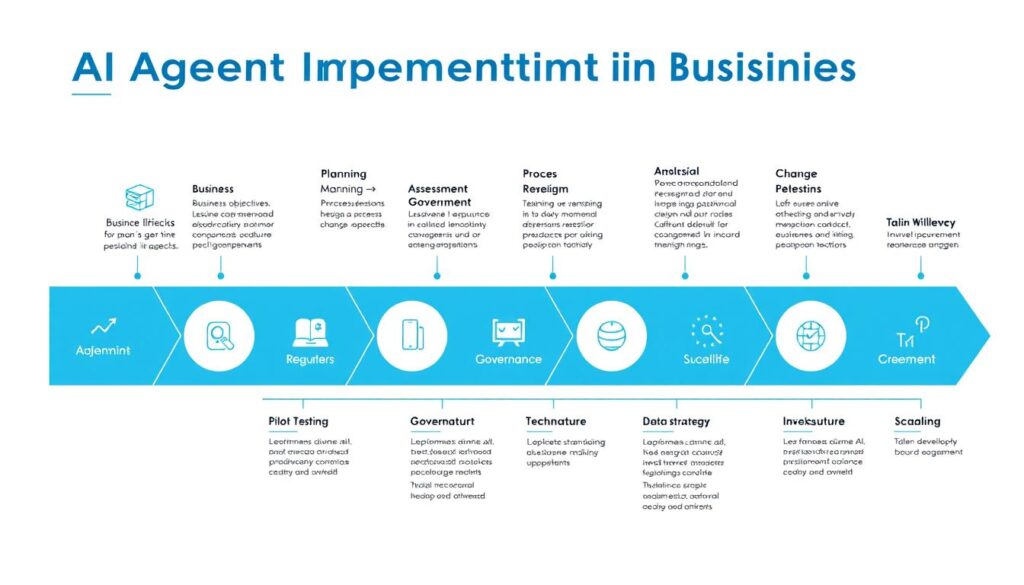
Conclusion
The rise of AI agents represents one of the most significant business transformations of our era. By 2025, these autonomous systems will be firmly established as essential tools for competitive organizations across virtually every industry. The ability to perceive, decide, and act with minimal human intervention enables unprecedented levels of operational efficiency, scalability, and innovation.
However, realizing the full potential of AI agents requires more than simply deploying advanced technology. Organizations must thoughtfully address workforce implications, security considerations, and ethical challenges while developing the governance frameworks and technical infrastructure needed to support these systems effectively.
The businesses that thrive in this new landscape will be those that view AI agents as partners in a transformed operating model—one that combines the unique strengths of human creativity and judgment with the speed, scalability, and analytical power of autonomous AI. By embracing this vision and implementing AI agents strategically, forward-thinking organizations will establish enduring competitive advantages that extend well beyond 2025.
Additional Resources
AI Agent Implementation Guide
Our comprehensive guide covers everything you need to know about selecting, implementing, and optimizing AI agents for your specific business needs.
AI Readiness Assessment Tool
Evaluate your organization’s current capabilities and identify key areas for development before implementing AI agent technology.
AI Agent ROI Calculator
Estimate the potential return on investment from AI agent implementation based on your industry, company size, and specific use cases.
